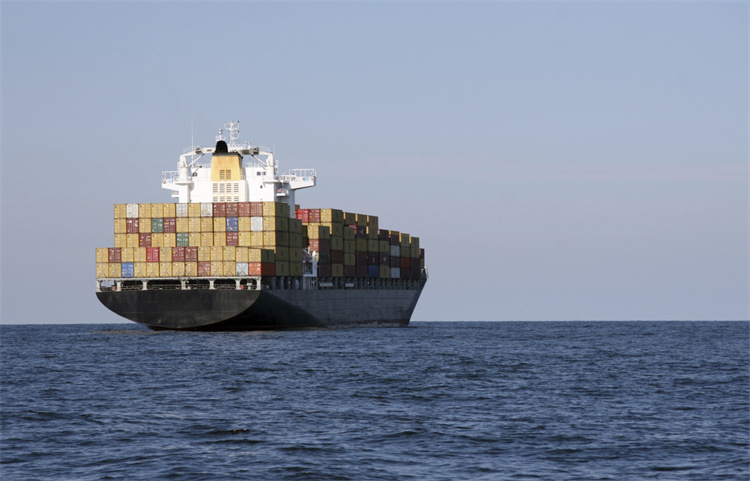Luft- und Seetransport: Greener Paths in Logistics

Green logistics emphasizes creating more sustainable and climate-friendly logistics processes. This approach not only reduces pollution but also boosts resource efficiency. Sustainable development in logistics is vital for meeting environmental standards and fostering growth. The logistics industry must implement strategies such as green transportation and sustainable packaging. JUSDA is instrumental in advancing green logistics by incorporating eco-friendly practices in Luft- und Seetransport and LKW-Transport. These initiatives help in minimizing the environmental footprint while enhancing competitiveness.
Understanding Green Logistics
Definition and Importance
What is Green Logistics?
Green logistics refers to the implementation of environmentally friendly practices within the logistics industry. This approach focuses on reducing the environmental impact of logistics operations. The logistics sector contributes significantly to global CO2 emissions. Approximately 11% of these emissions originate from transport logistics. Green logistics aims to minimize this impact by adopting sustainable practices.
Why is it crucial for sustainable development?
Sustainable development relies on reducing pollution and conserving resources. Green logistics plays a vital role in achieving these objectives. By implementing green logistics, companies can reduce their carbon footprint and enhance resource efficiency. This not only benefits the environment but also improves the competitiveness of businesses. The logistics industry must adopt green logistics to meet environmental standards and promote sustainable growth.
Key Principles of Green Logistics
Reducing carbon footprint
Reducing the carbon footprint is a fundamental principle of green logistics. The logistics industry can achieve this by utilizing alternative fuels and electric vehicles. Optimizing transportation routes further contributes to emission reduction. These measures help decrease greenhouse gas emissions, benefiting both the environment and society.
Enhancing energy efficiency
Energy efficiency is another key aspect of green logistics. Implementing energy management systems (EMS) within warehouses enhances energy use across the logistics network. Efficient energy use reduces operational costs and minimizes environmental impact. Companies that prioritize energy efficiency contribute to sustainable logistics practices.
Environmental Impacts of Transportation Modes

Luft- und Seetransport
Environmental challenges in air transport
Air transport significantly contributes to greenhouse gas emissions. The reliance on fossil fuels in aviation results in high carbon output. Airplanes consume large amounts of fuel, leading to substantial CO2 emissions. The logistics industry faces the challenge of balancing efficiency with environmental responsibility. The high-speed nature of air transport often overshadows its environmental impact. Reducing emissions in air transport requires innovative solutions.
Opportunities for sustainability in air transport
Sustainable aviation fuels offer a promising solution for reducing emissions. These fuels can lower the carbon footprint of air transport. Airlines can also optimize flight routes to enhance fuel efficiency. Advanced technologies can improve aircraft design for better energy use. Implementing these strategies can make air transport more sustainable. The logistics industry can lead the way in adopting green practices in aviation.
Sea Transport
Environmental challenges in sea transport
Sea transport accounts for a significant portion of global freight emissions. Large cargo ships burn heavy fuel oil, releasing pollutants into the atmosphere. The vast distances covered by maritime shipping contribute to high emission levels. The environmental impact of sea transport poses a challenge for the logistics sector. Addressing these issues is crucial for sustainable development.
Opportunities for sustainability in sea transport
Optimizing shipping routes can reduce fuel consumption and emissions. The use of alternative fuels can further decrease the environmental impact. Energy-efficient ship designs can enhance sustainability in sea transport. Implementing these measures can lead to greener maritime logistics. The logistics industry can benefit from adopting sustainable practices in sea transport.
LKW-Transport
Environmental challenges in truck transport
Truck transport contributes to increased traffic and longer hauls. This results in higher emissions from fossil fuel consumption. The logistics industry faces the challenge of reducing the carbon footprint of trucks. Emissions from LKW-Transport impact air quality and contribute to climate change. Addressing these challenges is essential for sustainable logistics.
Opportunities for sustainability in truck transport
Electric trucks offer a viable solution for reducing emissions. These vehicles can decrease dependency on fossil fuels. Optimizing transportation routes can also enhance energy efficiency. The integration of rail or barge transport can further reduce CO2 emissions. The logistics industry can improve sustainability by implementing these strategies.
Case Studies: JUSDA's Green Logistics Strategies
Air Transport Innovations
JUSDA's use of sustainable aviation fuels
JUSDA has pioneered the use of sustainable aviation fuels in its air transport operations. Sustainable aviation fuels significantly reduce carbon emissions compared to traditional fossil fuels. JUSDA's commitment to these fuels showcases a dedication to environmental responsibility. The logistics industry benefits from such innovative practices that aim to minimize ecological impact.
Impact on reducing carbon emissions
The positive environmental impact reinforces the importance of adopting green logistics solutions.
Sea Transport Innovations
JUSDA's optimization of shipping routes
JUSDA has optimized shipping routes to enhance fuel efficiency in sea transport.
Impact on fuel efficiency and emissions
Optimized shipping routes have improved fuel efficiency and reduced emissions in JUSDA's sea transport operations. The reduction in emissions contributes to a cleaner environment. JUSDA's success highlights the potential for logistics companies to implement similar strategies. The focus on sustainability ensures long-term benefits for both the industry and the planet.
Truck Transport Innovations
JUSDA's implementation of electric trucks
JUSDA has introduced electric trucks into its logistics fleet. Electric trucks offer a sustainable alternative to traditional diesel-powered vehicles. JUSDA's initiative represents a significant step towards reducing fossil fuel dependency. The logistics industry can benefit from the adoption of electric vehicles.
Impact on reducing fossil fuel dependency
The use of electric trucks by JUSDA has decreased reliance on fossil fuels. This transition supports global efforts to reduce greenhouse gas emissions. JUSDA's leadership in this area sets a precedent for other logistics companies. The move towards electric vehicles aligns with the principles of green logistics, promoting a more sustainable future.
Challenges and Opportunities in Green Logistics
Overcoming Barriers
Technological challenges
Green logistics faces several technological challenges. The logistics industry requires advanced technology to reduce environmental impact. Developing efficient electric vehicles remains a significant hurdle. Many companies struggle with integrating renewable energy sources. The need for innovative solutions is crucial for sustainable logistics.
Economic considerations
Economic considerations play a vital role in green logistics. Implementing eco-friendly practices often involves high initial costs. Companies must balance sustainability with profitability. Investments in green technology can strain financial resources. The logistics sector must find cost-effective solutions to remain competitive.
Future Opportunities
Emerging technologies
Emerging technologies offer promising opportunities for green logistics. Innovations in electric vehicle design enhance efficiency. Renewable energy sources provide sustainable power options. Advanced data analytics optimize transportation routes. These technologies contribute to reducing the environmental footprint of logistics operations.
Policy and regulation support
Policy and regulation support is essential for green logistics. Governments play a crucial role in promoting sustainable practices. Incentives for using eco-friendly technologies encourage adoption. Regulations set standards for reducing emissions in logistics. Supportive policies drive the transition to greener logistics solutions.

SMART JUSLINK
Supply Chain Management Solution
Green logistics plays a crucial role in reducing the environmental impact of logistics operations. Companies can enhance their eco-responsible reputation by adopting sustainable practices. Strategies such as using sustainable packaging and optimizing transportation routes contribute to resource efficiency. Green logistics not only benefits the environment but also improves operational efficiency. The logistics industry must embrace these practices to ensure a sustainable future. Businesses should actively seek innovative solutions to minimize their carbon footprint. A commitment to green logistics is essential for achieving long-term sustainability goals.
See Also
Exploring the Latest in Sea Freight Logistics for 2024
Innovations in Transportation Logistics: Exploring Tomorrow's Tech
Mastering Eco-Friendly Transport in the Supply Chain Industry
The Future of Logistics: AI's Impact on Supply Chains
Transforming Supply Chain Operations: The Logistics Innovation Effect
